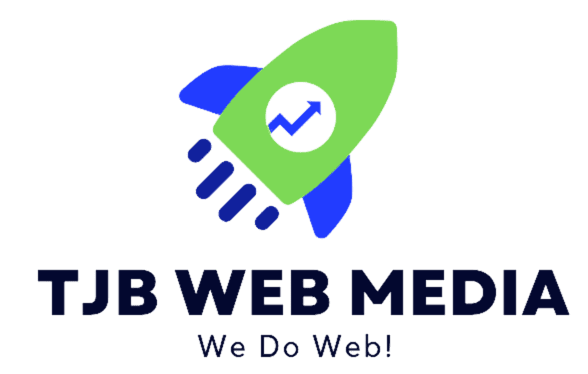When it comes to SEO, there’s a lot of buzz around keywords, backlinks, and technical audits—but one of the most powerful drivers of search engine performance is often overlooked: content relevance.
At TJB WebMedia, we help small businesses in New Jersey and beyond optimize their websites for visibility, credibility, and conversions. And if there’s one thing we emphasize to every client, it’s this: relevant content is what fuels SEO success.
In this article, we’ll break down what content relevance means, why it matters, and how to make sure your website content aligns with what search engines (and users) actually want.
What Is Content Relevance?
Content relevance refers to how well a piece of content matches the intent of the user’s search query. In simple terms, it means your content answers the question or solves the problem someone is searching for on Google.
For example, if someone types in “how to fix a leaky faucet,” Google will prioritize content that clearly explains steps to fix a faucet—not a general history of plumbing or a pitch for buying faucets. Relevance means serving the right content to the right user at the right time.
Why Content Relevance Is Critical for SEO
Google’s job is to give users the best possible results for their queries. If your page isn’t relevant, it’s not going to rank—no matter how many backlinks or keywords it has.
Here’s why relevance matters:
1. Improves Rankings
Google’s algorithms, especially after updates like BERT and Helpful Content, are designed to understand context and meaning. If your content is tightly aligned with a search query, you’re more likely to appear on the first page.
2. Boosts User Engagement
Relevant content keeps visitors on your page longer, reduces bounce rates, and encourages interaction—all of which are positive signals to search engines.
3. Builds Trust and Authority
When users find what they’re looking for on your site, they trust your brand more. And over time, this relevance contributes to your website’s authority in your niche.
How Google Determines Content Relevance
Google uses a mix of natural language processing (NLP), machine learning, and user behavior signals to determine content relevance. Some of the factors include:
-
Keyword usage in context—not just stuffing them randomly
-
Search intent (informational, transactional, navigational)
-
Topical depth—how thoroughly the topic is covered
-
Semantic relevance—related terms and concepts
-
User engagement—click-through rate, bounce rate, dwell time
This means writing for humans first and search engines second. Gone are the days of keyword stuffing—Google now rewards content that’s useful, accurate, and well-structured.
4 Key Pillars of Content Relevance
To make your content relevant, focus on these four areas:
1. Search Intent Alignment
Search intent is the “why” behind a query. Are users looking for information? Trying to buy something? Comparing options?
Let’s say you’re writing for a local HVAC company in NJ. If someone searches “best HVAC maintenance tips for winter,” your article should provide actionable tips—not just list HVAC services.
TJB WebMedia helps clients analyze keyword intent before content creation to ensure alignment with what users (and Google) expect.
 2. Topical Depth and Authority
2. Topical Depth and Authority
Google prefers content that explores a topic thoroughly. A 300-word fluff piece won’t cut it anymore.
To increase topical relevance:
-
Use subheadings (H2s, H3s) to break down related concepts
-
Include FAQs, definitions, comparisons, and examples
-
Link to authoritative sources and related internal pages
This signals that your page is a comprehensive and credible resource.
3. Keyword Relevance and Semantic Context
Yes, keywords still matter—but they need to be used naturally and in the right context.
Don’t just focus on exact matches. Use:
-
LSI keywords (latent semantic indexing) like synonyms and related phrases
-
Structured data and clear formatting to improve clarity
For instance, a page targeting “roof repair in Middlesex County NJ” should also include terms like “storm damage,” “emergency repair,” and “roof inspection.”
4. Audience-Centric Content
Relevance also means knowing your audience. Local SEO content for a New Jersey small business should sound different than technical content for an enterprise software company.
At TJB WebMedia, we help clients fine-tune tone, style, and structure so their content resonates with real people—not just search bots.
How to Improve Content Relevance on Your Website
Here are some simple but effective ways to make your content more relevant and SEO-friendly:
1. Conduct Keyword Research Based on Intent
Use tools like Google Search Console, SEMrush, or Ubersuggest to find the terms people actually use—and make sure to assess the why behind them.
2. Audit and Refresh Old Content
Update outdated pages with fresh statistics, improved formatting, new sections, and stronger internal linking. Google loves updated content.
3. Use Clear Structure and Formatting
Headings, bullet points, short paragraphs, and bolded text help both users and search engines understand your content better.
4. Answer Specific Questions
Use question-style headers, “People Also Ask” boxes, and schema markup to directly address common queries in your industry.
5. Link to Relevant Pages
Internal linking helps Google understand your site structure and provides users with more value. Make sure links are natural and contextually relevant.
Content Relevance and Local SEO
For local businesses in NJ, content relevance also means local relevance. That means:
-
Mentioning local cities, counties, and neighborhoods
-
Including location-specific tips or case studies
-
Optimizing for “near me” and mobile search queries
TJB WebMedia specializes in building content strategies for local SEO success, helping clients dominate their service areas with hyper-relevant, optimized pages.
Final Thoughts: Relevance Is the Foundation of SEO
Content relevance isn’t a buzzword—it’s a fundamental principle of how Google ranks content in 2025 and beyond.
If you want better rankings, more organic traffic, and higher conversions, your content needs to speak directly to the needs and questions of your audience.
At TJB WebMedia, we specialize in creating and optimizing website content that’s not only relevant but also drives results. Whether you’re a local contractor, medical office, or service provider, we’ll help your site show up where it matters—at the top of the search results.
Want to improve your content relevance and SEO?
📞 Contact TJB WebMedia for a free consultation today!
Related NJ SEO Posts:
NJ Online Reputation Management Services
Pay Per Click Management Company
XML Sitemap: Why It’s Crucial for SEO
The Role of SEO in Digital Success
Guide to Creating an Effective SEO Blog Post
Building Inbound Links to Improve SEO

